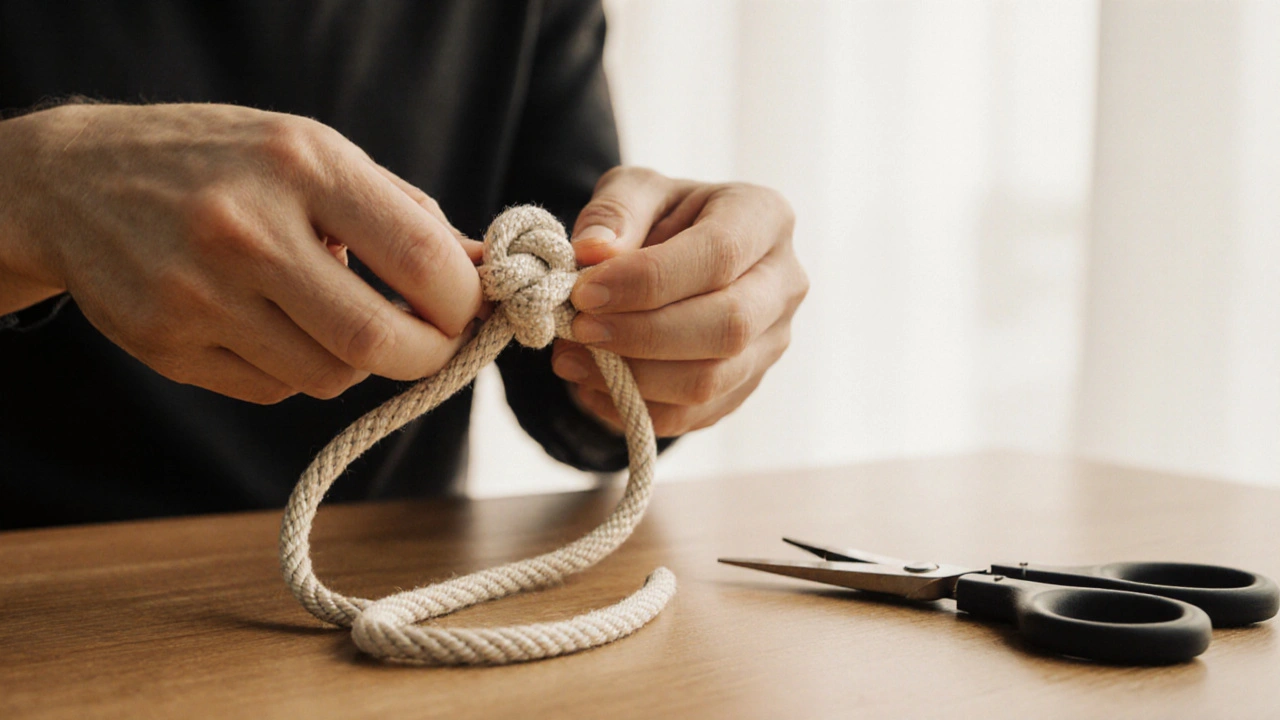Thinking about oral sex without a condom? It’s a topic that gets a lot of buzz, and not all of it is positive. While going condom-free can seem appealing, it's crucial to have a handle on the potential risks that come with it.
Oral sex without protection can expose you to sexually transmitted infections (STIs) like herpes, gonorrhea, and more. Knowing this, it might seem like big red flags are waving, right? But before you swear it off forever, there are ways to make it safer without totally taking the fun out of it.
Ever heard of dental dams? It's like a raincoat, but for your mouth—kind of a neat trick for staying safer and keeping things spicy. We all want to have fun without unnecessary stress, so being informed is half the battle. You’re not just looking out for yourself but for your partner too.
Understanding the Risks
When we're talking about oral sex without a condom, it's essential to be aware of the possible health risks involved. You might not see them, but STIs like herpes, gonorrhea, syphilis, and even HIV can be transmitted orally. And yes, each of these infections sounds pretty scary.
Let's break it down a bit. Herpes, for example, can be spread from cold sores around the mouth if oral contact happens. Gonorrhea can also infect the throat, which might lead to symptoms like a sore throat or unusual coughing. It's not just an urban myth—these infections are real and should be taken seriously.
STIs can be tricky because sometimes they don't show symptoms right away. Imagine sharing germs without even knowing it! That's why regular testing is super important. The quicker you catch an infection, the better your chances of treating it effectively.
In a nutshell, opting for oral activities without a protective barrier increases the likelihood of catching an infection. It's not about scaring you off but making sure you're making informed decisions. If you're going down this path, just know that staying updated on your health status and getting tested regularly is the smart move.
Safety Precautions
When it comes to oral sex without a condom, you might wonder how risky it really is. Here’s what you can do to protect yourself and your partner. First, keep communication open and honest. If you or your partner has any history of sexually transmitted infections (STIs), it’s important to discuss this beforehand.
Let’s look at some practical safety tips:
- Know your partner’s STI status: Regular testing is key. Not sure about your partner’s health? A little chat before can go a long way in keeping things clear and safe.
- Avoid if there are open sores: Cold sores or any oral sores should be a red light. If you spot anything suspicious, maybe hit pause until everything heals up.
- Dental dams: These nifty sheets of latex are a great alternative if you’re looking to stay on the safer side. Think of it as a barrier that can help prevent STI transmission.
- Maintain good oral hygiene: Healthy mouth, healthy experience! Brushing, flossing, and using mouthwash might seem basic, but it's super important. Avoid brushing immediately before or after oral sex to prevent gum irritation, which can increase the risk of transmission.
If you’re a numbers kind of person, check this out:
| STI Risk (without protection) | STI Risk (with dental dam) |
|---|---|
| High for STIs like herpes and gonorrhea | Significantly reduced |
So, while it might seem like a lot, these steps are simple changes that make a big difference. Whenever in doubt, opt for the safer approach, because who doesn’t want to keep the good times rolling without any worries?

Health Tips
So you're considering oral sex without a condom. Totally get it—it can feel more natural and intimate. Still, keeping things safe and sound is key, right?
Let’s start with basic hygiene. You're not brushing your teeth, flossing, or doing mouthwash an hour before—this can create tiny cuts that make infections more likely. Easy peasy but super crucial!
Know your partner; I mean, really know them. Have chats about health status. You both should be on the same page regarding STIs. Maybe even consider getting tested together; it's a bonding adventure, after all! In the words of Dr. Sarah Thompson, a well-known sexual health expert:
"A simple conversation with your partner can reduce anxiety and keep your health in check. Always go for regular STI screenings with partners who are not monogamous."
Think about vaccinations. Have you heard about the HPV vaccine? It’s a game-changer and reduces the risk of certain infections.
Maintaining a healthy mouth and oral cavity is important too. Guys, if you smoke, it's time to rethink that habit. Smoking can mess up your oral health big time, which in turn can increase STI risks.
- Brush and floss regularly—but remember, don't overdo it right before the act.
- Use alcohol-free mouthwash if needed.
- And yeah, chewing sugar-free gum post-act can actually help balance out the mouth pH levels.
Food for thought, right? Taking the time to sort out these health tips not only keeps things safe but also elevates the whole experience. Better safe than sorry, as they say!
Real-Life Scenarios
Imagine being in the heat of the moment, where everything feels just right, and reaching for a condom might seem like a mood killer. You're not alone in thinking that way. Many folks have found themselves in similar moments, weighing the thrill of oral sex without a barrier against potential risks.
Take Emily and Jake, a couple who decided to skip the condom during oral. They felt the intimacy was heightened, but they were also aware of the risks. They knew that the risk of STIs could spike if they weren't careful, so they made it a point to get tested regularly and made sure they communicated openly about any symptoms or health changes. For them, it wasn't just about rolling the dice but also about making informed choices.
On the other hand, there's Kyle, who hooked up with someone new. They went for it without any protection, and though it was exciting, the next day he found himself worrying about whether it was worth it. He decided not to ignore the anxiety and set up a screening with his doctor to ensure everything was okay.
These stories highlight a key point: it's all about balancing desire with health awareness. While no method outside of abstinence is entirely foolproof, understanding and using other preventative strategies can reduce risk. For instance, being in a monogamous relationship where both partners are tested and open with each other can add more peace of mind.
The takeaway? If you choose to engage in oral without a condom, staying informed and cautious about your sexual health could be your best ally. Consider regular health checks and honest talks with your partner about protection and personal health status. It's not just about trust but also about being proactive so you can enjoy the moment without unnecessary worry.







